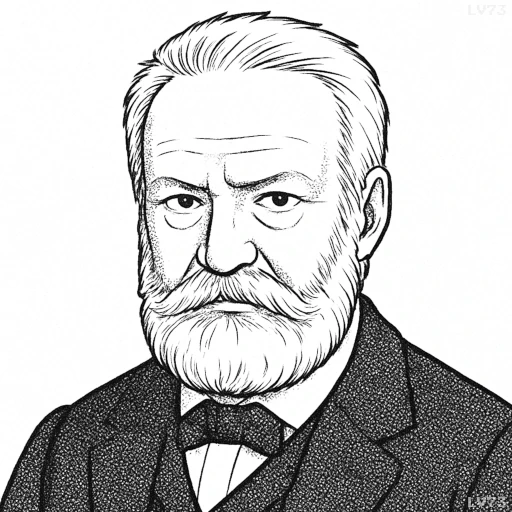“Society is a republic. When an individual tries to lift themselves above others, they are dragged down by the mass, either by ridicule or slander.”

- February 26, 1802 – May 22, 1885
- Born in France
- Author, poet, playwright
table of contents
Quote
“Society is a republic. When an individual tries to lift themselves above others, they are dragged down by the mass, either by ridicule or slander.”
Explanation
In this quote, Victor Hugo reflects on the nature of society and how it functions as a collective entity, almost like a republic, where equality is expected and enforced. He suggests that when an individual tries to elevate themselves or stand apart from the collective, whether through pride, arrogance, or a desire to be superior, they are often pulled down by the very society they seek to transcend. This could happen through ridicule, where society mocks them for their perceived hubris, or through slander, where others attempt to discredit or harm their reputation. Hugo’s words point to the social pressure to conform and the consequences that come when someone challenges the status quo or tries to set themselves apart.
This observation reflects Hugo’s broader view on individualism and society. He recognizes the tension between individual aspirations and the collective forces that shape a community. While great individuals or innovators may arise, society often tries to keep them within its boundaries, either by force or through social condemnation. In this sense, Hugo portrays society as a force that, while offering support and belonging, can also stifle those who seek to rise above it.
In modern terms, this quote speaks to the challenges of individualism in a world that often values conformity and equality. It suggests that individuals who attempt to distinguish themselves may face backlash, especially when they challenge established norms or position themselves as above others. It also touches on the social dynamics of ridicule and slander, where society may react to difference with hostility, trying to bring the individual back into the collective fold. It encourages us to understand the push and pull between individual expression and societal expectations.
Would you like to share your impressions or related stories about this quote in the comments section?




